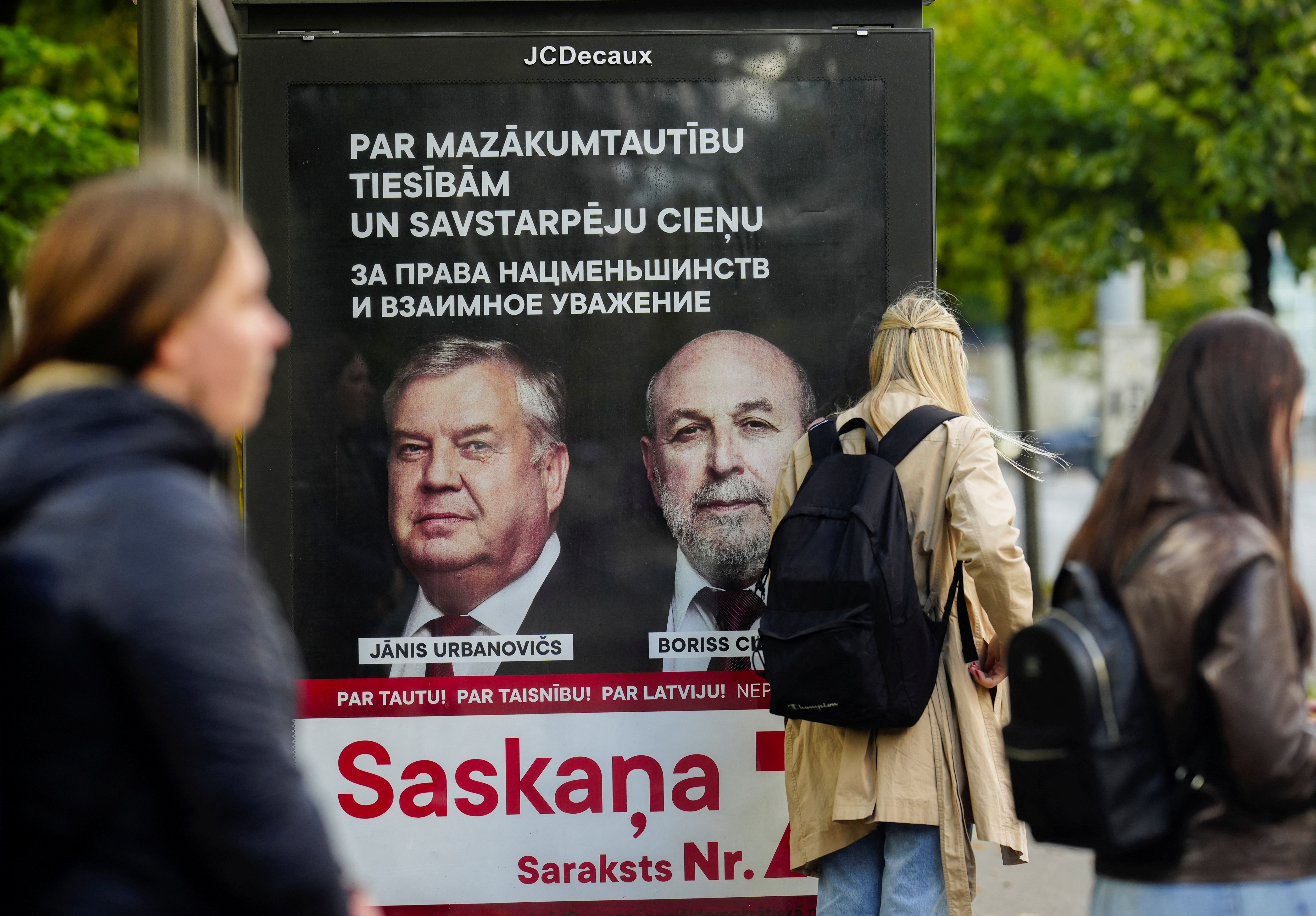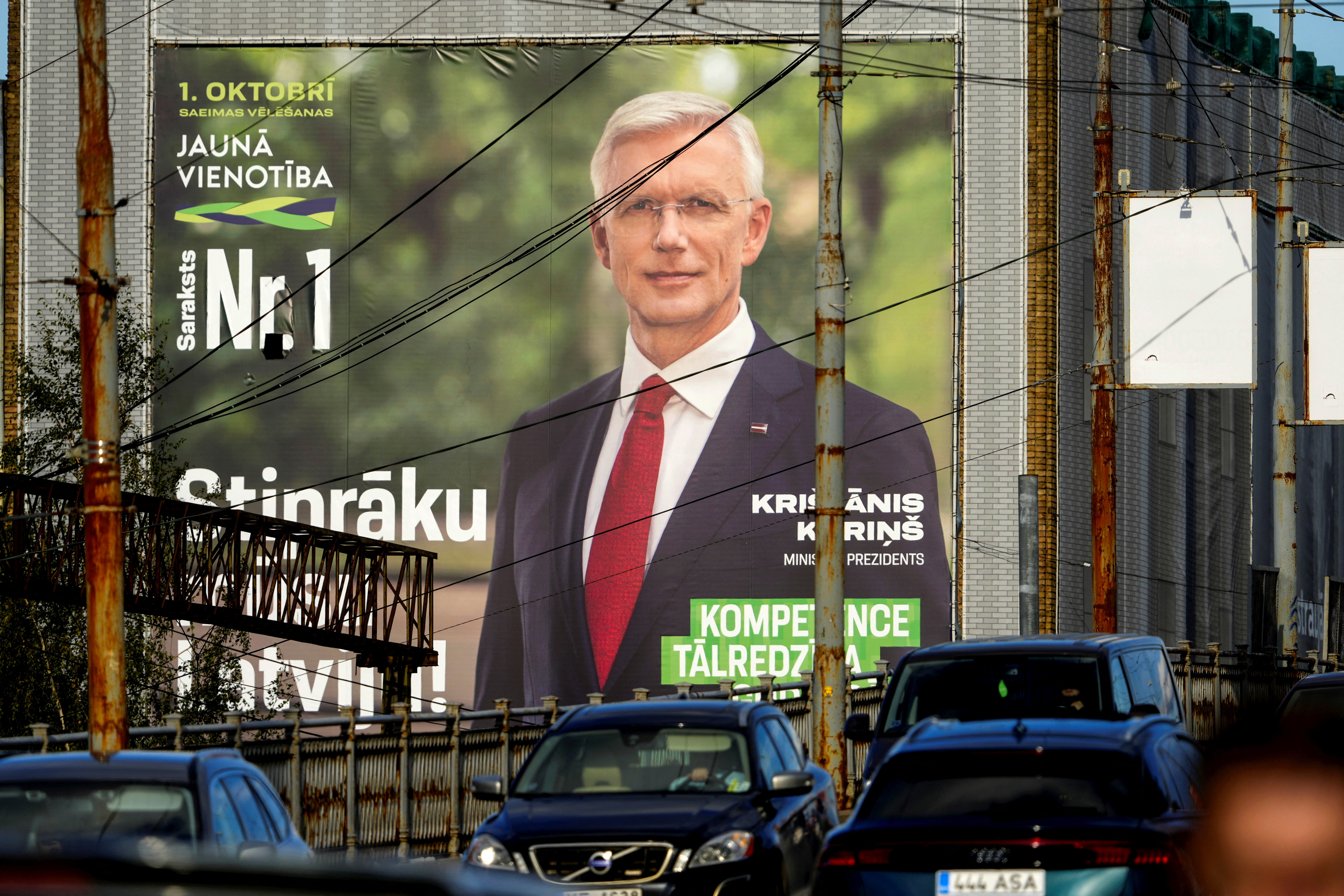Latvian Insecurity in Russia's Orbit
"Per capita, we are probably the state that gives the most weapons to Ukraine so that they can fight for us.:""When my 90-year-old parents watch the television news, when they see the horrors of the war in Ukraine, the mass graves, the burnt-out buildings, they see the Soviet occupiers again.""They remember their culture reduced to a folkloric theme, the dozens of thousands of innocent people sent to the Gulag, the Second World War which decimated their people.""These traumas come to haunt the entire population.""Putin killed minority rights for Russian speakers by manipulating the issue for expansion purposes."Nils Muiznieks, former Latvian cabinet minister"The Russian invasion of Ukraine revives two completely different perceptions of history. For many, it is a continuation of World War Two.""For Russian speakers, the victory monuments are symbols of their parents and grandparents who liberated the country from the Nazis. For the ethnic Latvians, the Soviet liberation is the beginning of a terrible occupation.""Until now, we avoided ethnic violence. But the war completely undermined this. What Putin did, played very well in the hands of nationalists.""It is far from perfect but enormous progress was made. We cannot afford to lose what we have gained."Boris Cilevics, Russian speaking Latvian community leader, former member of Latvian Parliament
 |
| An election campaign poster depicting leaders of Harmony party is seen in a public bus stop in Riga, Latvia September 28, 2022. REUTERS/Ints Kalnins |
During
the time of the Soviet Union's outreach to its satellites, there was a
migration of Russians taking up residence in countries that formed part
of the USSR. Now, those diverse nations are fully independent of Russia,
but all of them -- particularly the Baltic nations -- are, and always
have been, acutely aware of their vulnerable position and fear that they
will once again be inducted -- violently -- back into what is now the
Russian Federation. Vladimir Putin likes to use the fact that those
countries host ethnic Russians and thus, Russia has a responsibility to
the welfare of Russians living in the near abroad.
He
made his point in Georgia when he helped to separate two of its
provinces and again in Ukraine when he declared the Crimean peninsula to
be part of Russia. More latterly, he has subsumed in theory four huge
Ukrainian provinces into greater Russia during the Kremlin's 'special
military operation' in Ukraine. Latvia has latterly become extremely
aware of its vulnerability with the war raging in Ukraine with Russian
and Belarusian borders uncomfortably close to its own.
 |
| Motorists drive past a giant election campaign poster depicting Latvian Prime Minister Krisjanis Karins of New Unity party in Riga, Latvia September 28, 2022. REUTERS/Ints Kalnins |
Latvia
has the slight comfort of being part of NATO with a Canadian NATO troop
presence in the face of an increasingly aggressive Russia. It is also a
member of the European Union, but these salutary conditions cannot
change its geographic presence as a next-door neighbour to a country
whose appetite for domination cannot be appeased.
The
brutality of the Russian military in Ukraine, the mentality that sneers
at the conventions of war observed by civilized nations that has Moscow
ordering the bombing of civilian enclaves, of cities well outside the
zone of conflict, of hospitals, theatres, shopping malls, apartment
blocks, schools has engendered a lashback within Latvia. A nation of
three million people, a Russian speaking minority accounts for a third
of the population. Up to the present the two ethnicities have been
frostily accommodating.
It
hasn't helped that the Russian expatriates have never sought to
integrate themselves into Latvian society. Where they inhabit parts of
Latvia becomes a Russian enclave with Latvian seldom spoken and Russian
language dominating. In the course of the last year, since the Russian
invasion on February 24, nationalism has awoken from a slumber.
Accommodation of the Russian-speaking minority no longer predominates;
30 years of patience, waiting for that minority to become Latvian has
outworn its time.
A
poll taken in the summer of 2022 saw 25 percent of Russian speakers
opposed to the war, 25 percent supported it, and 50 percent declared
themselves undecided, a reflection of Russian propaganda. In the past
year over 30 criminal proceedings have been initiated relating to
inciting hatred and supporting Russian aggression. The Latvian
Parliament passed a law prohibiting the teaching of Russian in schools.
Government websites now appear in Latvian only Television channels originating in Russia are banned. "I am personally against these laws, but my party and I voted for them, social pressure was simply too strong",
explained Martin Bondars a former member of the Saeima. TV Dozhd, the
sole remaining Russian independent television channel, was shut down
after five months on air, accused of showing content sympathetic to the
invasion of Ukraine.
The
government of Latvia closed off its borders to Russian citizen,
inclusive of young men absenting themselves from mobilization --
although Russian dissidents and independent journalists are welcome.
These decisions don't come easily, since Latvia is very well aware of
the investing power of Russia in maintaining the Latvian economy.
Last
August a towering Soviet-era obelisk in commemoration of the Red Army
victory over Nazi Germany was toppled in a series of monuments pulled
down throughout Eastern Europe as hostility toward Russia grows.
Things
did change in Latvia among the ethnic Russian population. Younger
generations have become fluent in Latvian; more interested in European
capitals than they are in Moscow. A bare fifth of the Russian population
could speak some Latvian in 1989, but by 2022, 22 percent of the
Russian community was unable to speak Latvian.
 |
| The refugee orientation in the auditorium of Middle School 10. The projector is showing the Latvian and Ukrainian flags. Politico |
"In the context of this senseless war, I have no moral authority to protest against these anti-Russian measures.""I met Latvian speakers my own age when my parents sent me to art school in the city centre. I was so shy. I didn't care speak Latvian. It took years before I became fluent.""I never lived there [Russia]. I am not a Russian citizen. I am a Russophone Latvian, a European.""Putin is the biggest Russophobe that ever existed."Igor Gubenko, 37, Russian-speaking philosophy professor, University of Riga
Labels: Latvia, Minority tensions, Russian Invasion of Ukraine

<< Home